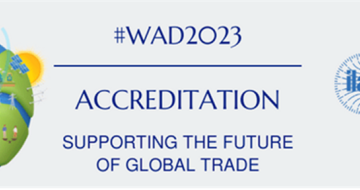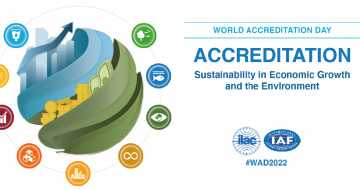 Recently modified and new BELAC documents
Recently modified and new BELAC documents- News from Belac
- Management System of BELAC - Documents
- Additional information from BELAC
- Contacts Belac
Accreditation: what is it?
What is an accreditation? It is an attestation granted by a third party related to a body for conformity assessment, such as a laboratory, an inspection or a certification body.
This certificate is granted by an accreditation body after a thorough assessment based on internationally recognized requirements; it conveys the formal demonstration of the competence of the organization to carry out specific tasks relating to conformity assessment.
Laboratories, inspection and certification bodies may, through accreditation, provide evidence of their technical abilities, but also of their independence and impartiality.
Accreditation: why?
The economic structures are subject to a dynamic evolution forced by the trade internationalisation. Moreover, products and services must meet regulated requirements which aim at guaranteeing their use in full safety.
It is essential to gain the confidence in the conformity of products and services both of the economic actors and of the authorities in charge of the market control.
The conformity is attested on documents joined to the products and are issued by conformity assessment bodies (laboratories, inspection and certification bodies). A product or service accompanied by a report issued by an accredited body inspires increased confidence as to conformity with the laid down specifications, which facilitates market access.
It is obvious that accreditation is an instrument favouring free circulation of products and services. It contributes to eliminate technical barriers, to allow fair competition and to achieve harmonization in trade agreements.
Accreditation in Belgium: how?
In Belgium the accreditation structure is based on the Law of July 20, 1990. (in French)
Since August 1, 2006, BELAC is the only Belgian Accreditation Body. It was established by the provisions of the Royal Decree of January 31, 2006 and is placed under the responsibility of the FPS Economy, S.M.E.s, Self-employed and Energy.
BELAC operates according to the international requirements with regard to the management of the accreditation bodies.
Accreditations issued under the BELAC roof are recognized by the Belgian State.
Accreditation at international level: how?
National accreditation bodies are involved in networks at a regional level which, in turn, cooperate on a world wide basis. Mutual recognition of accreditation services is decided only after thorough evaluation through peer review according to strict requirements agreed at international level.
BELAC is a signatory of all existing MLAs (multilateral agreements) and MRAs (multilateral recognition agreements) of EA (European co-operation for Accreditation), ILAC (International Laboratory Accreditation Cooperation) and FALB (Forum of Accreditation and Licensing Bodies).
In this way, reports and certificates issued by BELAC accredited bodies are internationally recognized.
In turn, BELAC recognizes the accreditations delivered by equivalent accreditation bodies with which a mutual recognition is effective and BELAC promotes the acceptance of reports and certificates issued by the accredited bodies.

